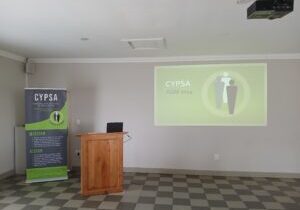…after break, I cannot teach the learners anything, they are all on a high, using dagga,” stated a disgruntled principle. Surveys done at 2 534 schools across South Africa point to the fact that drug abuse is a key reason behind the high failure rates of students and that dagga ranks as the third biggest problem after general drug addiction and teenage pregnancy.
At the outset, it must be noted that the 2017 United Nations Office on Drugs and Crime Report states: “the implementation of medicinal use and recreational legalization is causing this widespread perception that dagga is not harmful.” Extensive political, societal and regulatory debates are raging regarding the legalization of dagga (cannabis sativa) in South Africa. The trial which has commenced in the High Court in Pretoria is a matter between the first and second plaintiffs Julian Christopher Stobbs and Kathleen Myrtle Clarke (who were both previously arrested for the possession of 1.87 kg of dagga roughly worth R500 000) and the third plaintiff, Clifford Alan Neal Thorp and the seven state Defendants and Doctor’s for Life International as an eighth defendant.
The plaintiffs hold that the legislative prohibition against the possession and use of Cannabis by adults is inconsistent with the Constitution and therefor invalid. Among other particulars they further call for the removal of Cannabis from the list of substances listed in Part III of the Schedule 2 of the Drugs and Drug Trafficking Act, 1992; that it be removed from the list of substances in Schedule 7 of the Medicines and Related Substances Act, 1965 and that all references to Dagga in section 21 of the Drugs and Drug Trafficking Act, 1992 be expunged.
The long-term impact of dagga on our society must be given due attention. The World Drug Report highlights that an increasing number of younger people are seeking treatment for dagga related disorders and that in Africa it is the main drug for which treatment is sought. According to the British Journal of Pharmacology when exposure to cannabis occurs during critical periods of brain development there is an increased threat of cognitive deficits, memory loss and a drop in IQ. This is particularly alarming for the South African society where we are already plagued by the highest unemployment rates since 2002 with 38.6% of our youth being unemployed. To make matters worse, the average high-school drop-out rate is 44.6%.
According to research from the National Drug Court Institute, dagga can remain in the body for a long period of time. We could therefore argue that since dagga remains in the body for more than 21 days, even the smoking of dagga or ingesting it as an edible after school or over weekends, are retarding school children’s academic and sport achievements, and creates an unsafe environment for the child. The right of the child to a safe environment, and the right to learn is therefore infringed. It is noted that in the case before the High Court, the plaintiffs made it clear that they are not seeking a free for-all, but that the prohibition of use by adults is unconstitutional. The scourge of dagga on our young people is undeniable, how much more so when cannabis has been legalized? Even if regulated, it will be more accessible and easily procured.
The Concerned Young People of South Africa (CYPSA), take the protection of the youth of South Africa as a fundamental responsibility and therefore commenced an interview process with the principals of schools across South Africa to guage the impact of drug abuse on learners and in particular, the effects of cannabis. Principal C observed that legalization of dagga, even for adult consumption only, would “mean our future is doomed and we have contributed to that.” Another overwhelmed principal noted that dagga is not only detrimental to physical health of users but it’s effects are far reaching in demoralizing teachers: “this days we see those smoking it [dagga] proceeding to Nyaope usage and as we can see our kids are overdoing it and there is no life as such…in our schools we think of resigning and taking early retirement to refrain from these substance abusers in our school, it is no longer safe for us as teachers because learners are smoking and not doing anything at school.”



